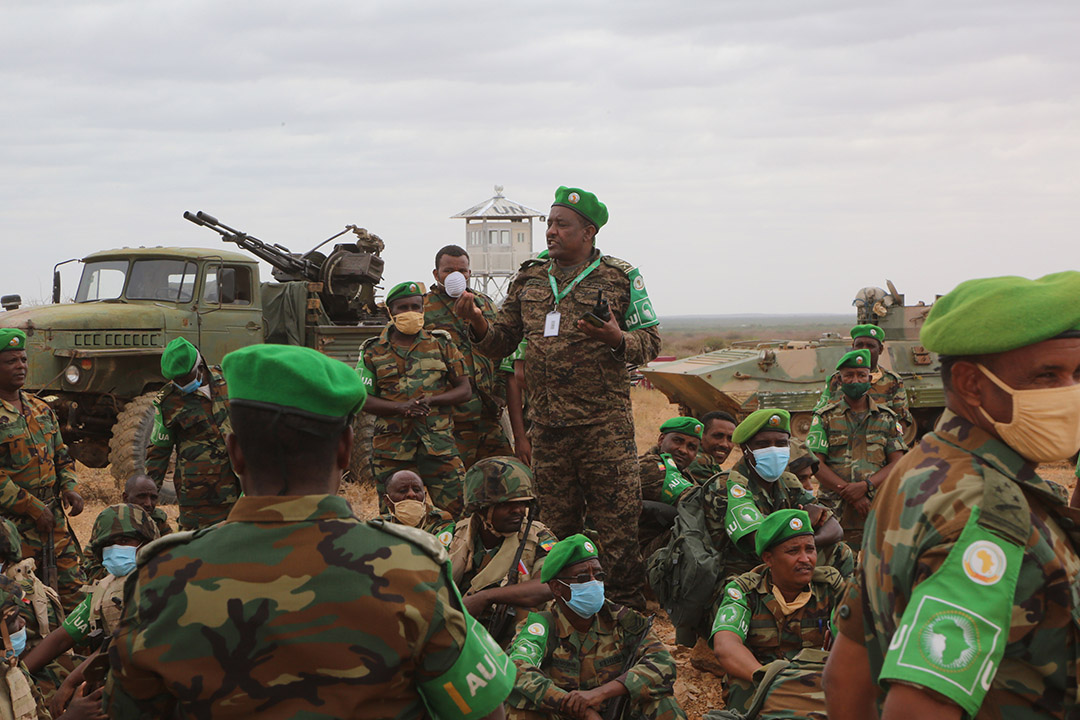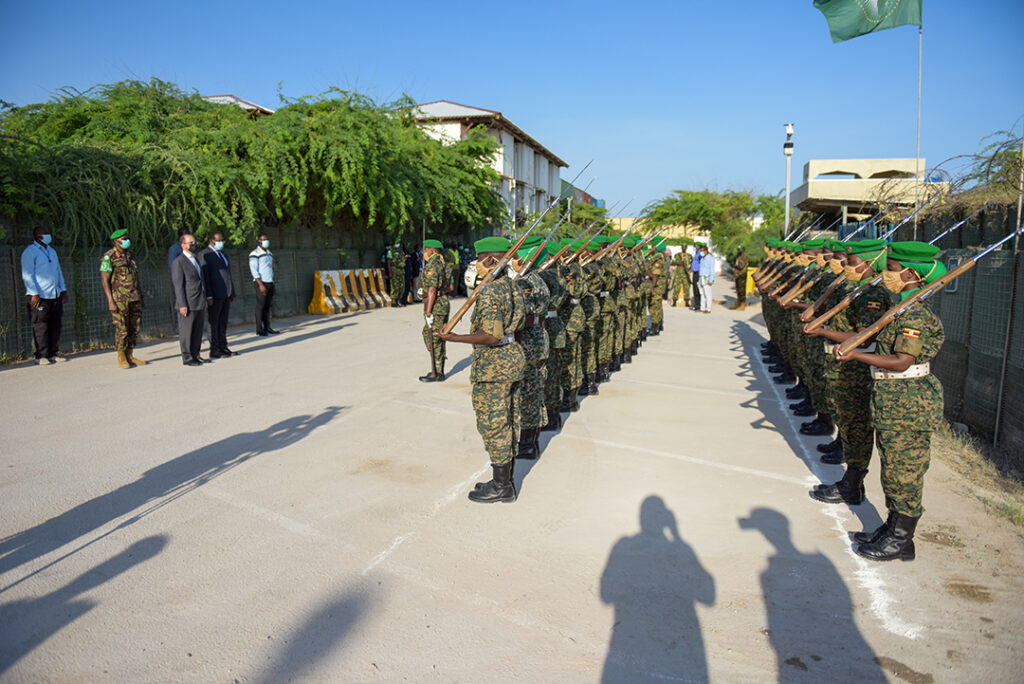ADF STAFF
The African Union has had a regional peacekeeping mission in Somalia for nearly as long as the country has been plagued by an Islamist extremist insurgency.
Established in 2007, the African Union Mission in Somalia (AMISOM) is tasked with supporting the fledgling government, implementing a national security strategy and training Somali security forces until they can defend the country.
Fourteen years later, the terror group al-Shabaab remains capable of launching attacks and is firmly entrenched in certain regions of the country. AMISOM’s mandate from the United Nations Security Council is set to expire at year’s end, and there is a decided lack of agreement on the peacekeeping force’s role moving into 2022.
Composed of nearly 20,000 troops and nearly 1,000 police officers, AMISOM has a diverse and difficult task instabilizing Somalia.
The force has struggled to balance the tasks of conducting counterinsurgency operations while also building the capacity of Somalia’s security forces, according to Paul D. Williams, associate director of Security Policy Studies at George Washington University’s Elliott School of International Affairs.

“There’s only so much you can do in terms of achieving political and other objectives with a very blunt military instrument, and that’s essentially what AMISOM is,” he said in a panel discussion called “The Future of AMISOM” hosted by the Center for Strategic and International Studies. “You can reconfigure it but only so much, given the composition of the force.”
Funding is another major issue, as the European Union reduced support by 20% in 2016 and 10% per year since.
The AU conducted an independent assessment of the mission’s future in May and presented four options in October:
- Replace AMISOM with a U.N.-AU hybrid peacekeeping mission similar to the now-ended U.N.-AU Hybrid operation in Darfur (UNAMID), which would secure financing and logistical support from the U.N.
- Replace it with the Eastern African Standby Force, which is similar to other regional forces on the continent.
- Reconfigure the AU-led force into a multidimensional (nonmilitary) support structure for Somali security forces.
- End the mission and transfer responsibilities to Somali forces.
Somalia rejected the report, saying it lacked a central role for the current government and a plan to build its own military.
As 2022 nears, talks continue with no sign of agreement on the horizon.
“While the AU’s first choice is the hybrid mission, the UN prefers AMISOM’s reconfiguration,” Meressa K. Dessu, senior researcher and training coordinator at the Institute for Security Studies, wrote in October. “However, neither option is supported by the Somali administration, which wants the AU’s support to be limited to military assistance to combat al-Shabaab.
“The federal government prefers a gradual handover of security duties to the Somali Security Forces, with a complete takeover by 2023.”
Any transition to a self-sufficient Somalia will take time.
Ministry of Defense Director-General Said Samantar told The East African newspaper that the handoff from AMISOM “will be implemented gradually, taking into consideration the level of readiness by Somali security forces. … We will steadily exchange roles with our African brothers and sisters who have been helping us over a decade.”
The al-Qaida-linked al-Shabaab militants continue to control large chunks of rural areas and unleash frequent, deadly attacks against military and civilian targets.
The need for AMISOM’s continued presence also was highlighted this year when a quarrel between Somali President Mohamed Abdullahi Mohamed and Prime Minister Mohamed Hussein Roble resulted in bloodshed and led to several election postponements.
The two men clashed after Mohamed’s four-year term was to end in February. In April, he attempted to extend his term by two years, prompting troops loyal to each man to seize and fortify parts of the capital, Mogadishu.
Taking advantage of the chaos, al-Shabaab bombed a Mogadishu passenger bus, killing at least 15 civilians, the government said.
The confrontation was resolved after days of fighting and protests when Mohamed, under pressure from international allies, put Roble in charge of organizing the overdue elections.
After more than a year of delays, parliamentary elections began in early November and are expected to conclude with a presidential vote by the end of the year.
“Time is running out, and Somalia’s long-awaited election remains doubtful,” Dessu wrote. “The AU, UN and international partners must make the polls a top priority.
“AMISOM should keep its existing structure and force strength with a focused mandate until the election is held and the political turmoil is resolved.”

